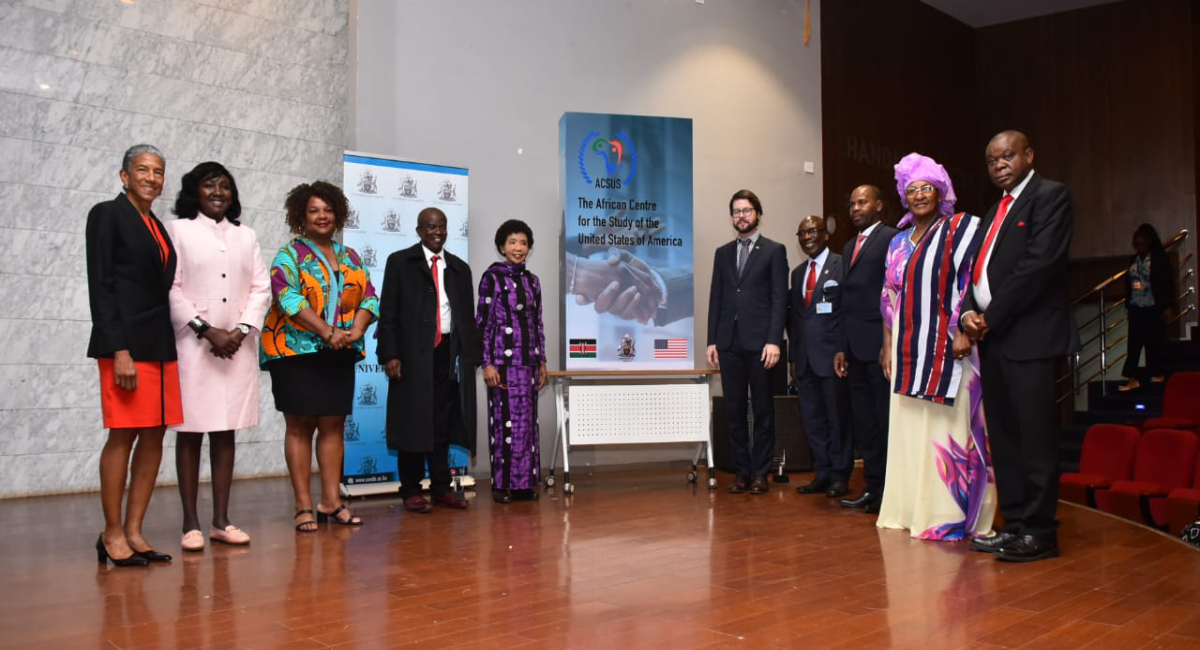The Nairobi City Diplomacy Symposium marked the conclusion of the launch of the Africa Centre for the Study of the United States (ACSUS) at the University of Nairobi. This significant event also served as a platform to advocate for Nairobi’s bid to host the 2025 Sister Cities International (SCI) Conference.
Key Discussions and Themes
The symposium, led by Prof. Patrick Maluki, Chair of the Department of Diplomacy and International Studies at UoN, facilitated discussions on U.S.-Kenya relations, environmental sustainability, climate change, gender mainstreaming, innovation and technology in smart cities, sports diplomacy, and smart city development.
Objectives of the Conference
The symposium aimed to:
- Provide an exposition on Sister Cities International (SCI) and Sister Cities Africa, engaging a diverse range of stakeholders.
- Raise awareness and understanding of city diplomacy, citizen diplomacy, and exchange diplomacy.
- Develop an organizational structure and strategies to enhance Kenya-U.S. sister city relations.
- Explore ways to incorporate city studies into Kenyan higher education curricula.
- Strategize for the possibility of Kenya hosting an SCI Africa Regional Summit in 2025.
- Develop approaches to engage citizens in Nairobi’s evolving identity and global positioning, ensuring residents understand the city's diplomatic and strategic significance.
Understanding City Diplomacy
City diplomacy is understood as part of “new diplomacy” that reflects the evolving landscape of international relations, distinct from Conventional diplomacy. It refers to how cities engage with global actors to represent their interests, fostering people-to-people and cultural exchanges. Nairobi, as one of the four United Nations cities alongside New York, Vienna, and Geneva, has immense potential in city diplomacy but remains underutilized in this role.
Because city diplomacy is an overarching phenomenon, the creation of typologies helps distinguish between its varieties such as the bilateral variety and the multilateral variety. Nairobi city currently maintains bilateral sister city agreements with Denver and Raleigh (U.S.), Kunming and Pingxiang (China), Mexico City (Mexico), Colonia Tovar (Venezuela), and Rio de Janeiro (Brazil). Additionally, it participates in a trilateral cooperation with Denver and Kunming, focusing on water supply projects in Nairobi.
Nairobi’s Campaign to Host the 2025 Sister Cities International Conference
Sister Cities International (SCI) fosters global relationships that promote people-to-people exchanges in areas such as culture, education, trade, and governance. Following the 2023 SCI International Conference in Johannesburg, South Africa, Nairobi is positioning itself as the host city for the 2025 conference. To support this bid, the Department of Diplomacy and International Studies is spearheading a campaign to secure Nairobi as the host city. On November 11, 2022, two students were officially appointed as University of Nairobi ambassadors for the 2025 SCI Conference, playing a key role in promoting Nairobi’s candidacy.
Why Nairobi?
Kenya’s strategic position makes it an ideal host for the SCI Conference due to:
- Its role as an economic, political, and cultural hub in East Africa.
- Its status as the global headquarters for UNEP and UN-Habitat, the leading UN agency focused on urban development.
- Nairobi’s significance as the headquarters for many American multinational corporations.
- The Jomo Kenyatta International Airport (JKIA) serving as a regional logistics and travel hub.
- Kenya’s rich tourism sector, featuring attractions across the country and along the Indian Ocean coastline.
The symposium reinforced Nairobi’s ambition to enhance its diplomatic influence on the global stage and solidified plans to strengthen international collaborations through city diplomacy and sister city partnerships.

